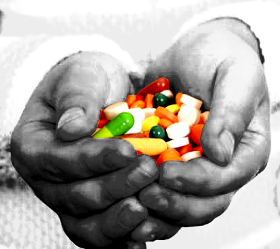Drug-makers' doctor deals decried
 Some doctors are working to end the links between GPs and big pharmaceutical companies, which are known to flood the industry with incentives to prescribe their products.
Some doctors are working to end the links between GPs and big pharmaceutical companies, which are known to flood the industry with incentives to prescribe their products.
Freebies of all kinds are common even when a would-be doctor is still at medical school, but now a group of doctors and academics have put together the No Advertising Please campaign to combat their hard sell.
Pharmaceuticals in Australia is an industry worth about $23 billion a year, and a huge part of that is spent on sales representatives and marketing schemes.
The “drug reps” as they are known put on dinners, seminars, holiday packages and anything else they can use to get professionals in a room to listen to them spruik their wares.
The No Advertising Please campaign calls on GPs to display a sign stating their refusal to court drug company sales reps.
There are rules to regulate some of these interactions, administered through a code of conduct by Medicines Australia, which represents the pharmaceutical industry.
The self-regulated code tells representatives they can offer free samples of drugs, branded office items and other perks such as meals.
One representative for the Australian Medical Association (AMA) told ABC reporters he though the campaign was “a bit silly”.
“It’s insulting to doctors,” AMA rep Dr Brian Morton said.
“It's also rather naive; our world revolves around education and information and the pharmaceutical companies are an important source of money for research, so every Australian will benefit from that research and pharmaceutical promotion.”
In an article for The Conversation, Associate Professor in General Practice at University of Western Australia Brett Montgomery argues that “drug reps often promote the newest medicines, still under patent and ripe with potential profit”.
“But the newer the drug, the less we may know about long term side effects – and sometimes these can cause serious harm,” he says.
“It is often wise to be slow to prescribe new drugs.”








 Print
Print